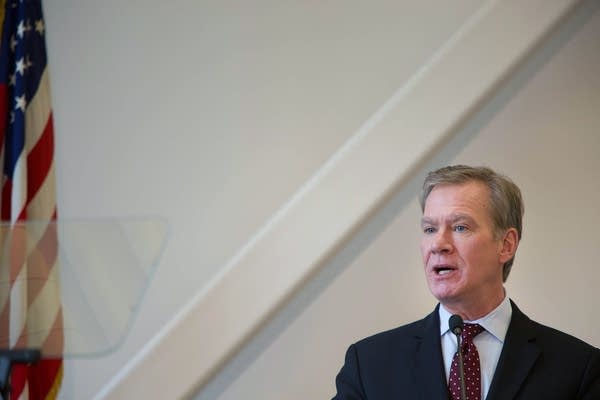St. Paul mayor defends police dept., use of deadly force

Saint Paul Mayor Chris Coleman delivers the 2014 State of the City address Monday, Mar. 31, 2014 at the Arlington Community Center in St. Paul.
Jennifer Simonson/MPR News
Go Deeper.
Create an account or log in to save stories.
Like this?
Thanks for liking this story! We have added it to a list of your favorite stories.


